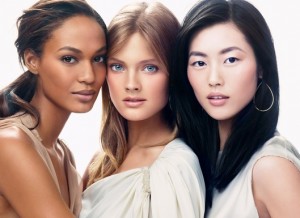This week made me especially reflect on the role of women of color in the women’s movement, the responsibility of individuals within the movement, and my personal role in the movement. From various feminist texts and discussions I have found that “women of color” is a dynamic term: in one discourse this term may include one type of woman and then in another discourse the term may exclude that same woman. I have been confused about where I stand in the women’s movement as an upper middle class black woman.
From an intersectional approach, I believe my personal brand of feminism should incorporate my race and class, in addition to my gender. The idea of tackling gender oppression, racism and the US class structure all at once has been rather daunting. Although I appreciate that intersectionality aims at respecting all perspectives at once, I don’t think that it is always practical for making real change. Respect is one thing, but focus is another. Intersectional awareness is necessary but I think specific discussions and specific activism is more effective for creating real change.
Our first session at the Summer School of Activism helped me better acknowledge my position as a “woman of color” in certain contexts and appreciate my position of privilege in others. This week I’ve also realized that being a woman of color while also having certain privileges is legitimate. Just because I can’t fully relate to the experiences of all women of color does not mean my perspective is any less valid.
I believe the Moxie Project is helping me determine what I want my role in the movement to look like. Our visit with Merle Hoffman of Choices Women’s Medical Center has inspired me to make social change outside of the traditional non-profit structure. I found Merle’s choice of entrepreneurship to incite change especially motivating.
When she asked us all what we saw our careers looking like in the future, I explained that I wanted a career in beauty advertising and/or product development. Upon voicing that vision, within the context of our discussion of the women’s movement, I was able to connect the dots between my social consciousness and my career-oriented brain. Advertising within the beauty industry is affected by both racism and gender oppression. I realized that by pursuing a career in this field I could simultaneously elicit social change. Having a say in what beauty advertisements say and whom they include, how beauty products are designed and how they are marketed – this can be a viable force within the greater women’s movement.
I want black and brown girls, teens and women to see themselves represented in a more inclusive media. As a black woman, I know how important issues of self-confidence and social inclusion are to all women – but particularly women of color. And although I recognize that an abundance of other, possibly more pressing issues negatively impact women of color across the globe, I still think that self-confidence is important. Each activist must start somewhere and can only efficiently make a difference in individual aspects of the movement. I believe that with my passion for beauty and women’s empowerment, in combination with my business-oriented career goals, I can help to make a concrete difference within the women’s movement.


